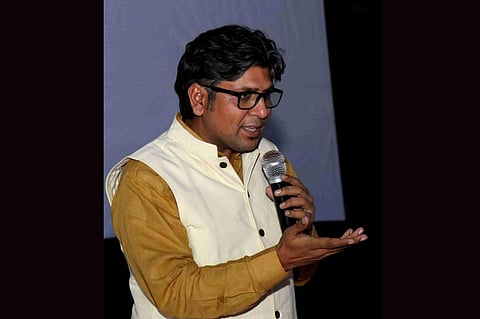
- LIFESTYLE
- FASHION
- FOOD
- ENTERTAINMENT
- EVENTS
- CULTURE
- VIDEOS
- WEB STORIES
- GALLERIES
- GADGETS
- CAR & BIKE
- SOCIETY
- TRAVEL
- NORTH EAST
- INDULGE CONNECT

As a student of Social Work at University of Delhi, filmmaker Kamakhya Narayan Singh had decided early on in life that he wants to address deeply imbibed issues in the social fabric of India through the motion lens. Growing up in Assam, he was also heavily inspired by Bhupen Hazarika’s philosophy which often spoke about communal amity, universal justice and empathy. The filmmaker has now been working on seldom addressed social issues in Jammu Kashmir, and also shedding light on the sanitation issues faced by the Musahar community in Bihar through his film Bhor. Kamakhya Narayan recently won the National Film Award in Best Film on Other Social Issues category for Justice Delayed but Delivered that focuses on the abrogation of Article 370 and 35A. We caught up with the filmmaker to talk about independent filmmaking, changing perspectives through films and the importance of giving voice to the voiceless through popular media.
Most of your films focus on seldom addressed social issues. What makes you choose these less explored topics?
My father was a businessman who settled in Assam. Owing to this, there was nothing very artistic in our house. However, my neighbours were artists, and Bhupen Hazarika’s tunes struck a chord deep within me. I moved to Delhi to pursue my graduation in Social Work, where, conforming to my passion for filmmaking, a professor advised me to shed light on the issues of people who are often overlooked in our society. When I took up films, hands on, I realised Indian films rarely uphold the true rural images of our country. This pushed me to bring out stories which are unheard or unseen through my independent documentaries and give voice to the voiceless. Justice Delayed but Delivered was also an attempt to the same.
You gave a different perspective to the abrogation of Article 370, which was a matter of controversy back in 2019, when it happened…
According to me, cinema is all about changing the lens. I have been working on Kashmir related issues for 10-11 years now. It all started with a friend researching the plight of commoners there. We stumbled upon a lot of facts that were untold, and in 2016 we started working on a documentary titled #Article35A which explored how women were deprived of their property rights if they married someone outside the land. I realised this was a strong example of gender discrimination that was still practised, and we kept working on other social issues that needed to be addressed. We also stumbled upon the Valmiki community who were brought into Kashmir from Punjab in 1957, but were denied a Permanent Resident Certificate. They were forced to work as sweepers for generations, despite having proper educational qualifications and other aspirations. Justice Delayed but Delivered is a film about the latter issue through the eyes of a girl named Radhika Gill, representing thousands of others like her. The amendment of Article 370 and abolition of Article 35A gave the much required human right to the people of this community to live as they want to. I feel Articles are all about giving rights to people, not about snatching it away from them.
Justice Delayed but Delivered is now streaming on YouTube.